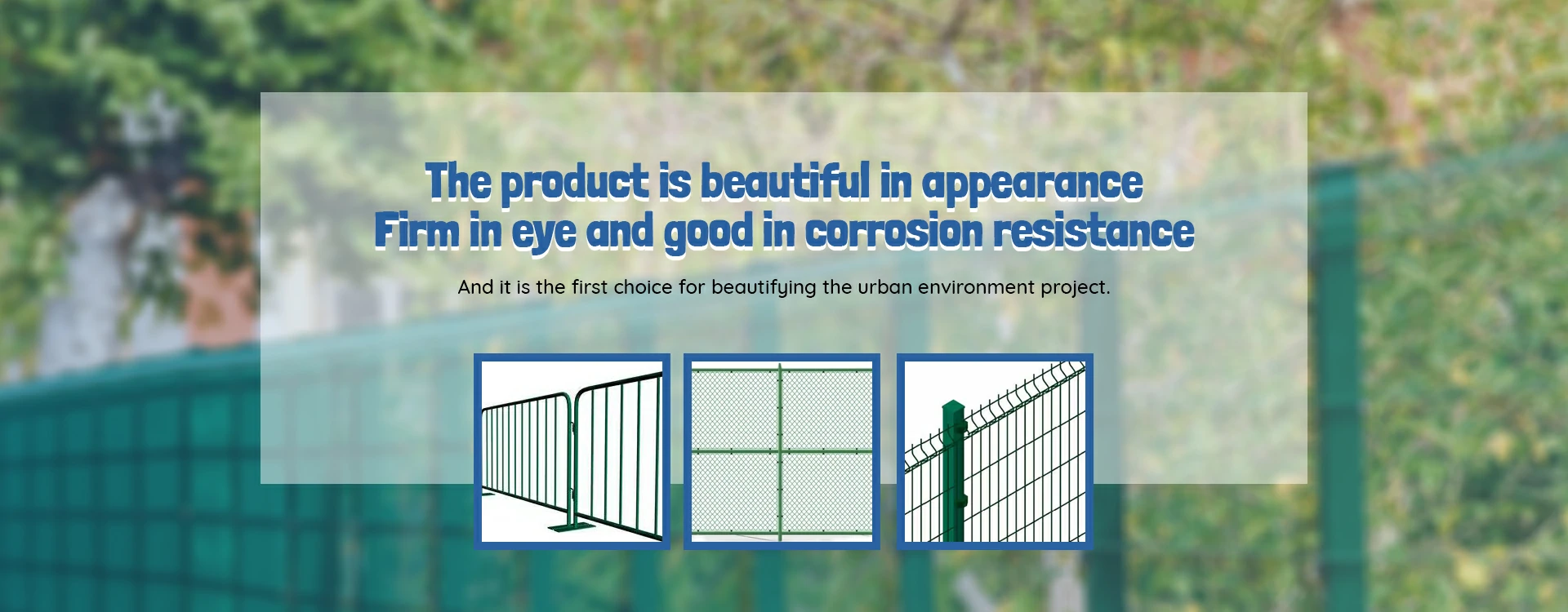 TEL:
+86-13102802206
TEL:
+86-13102802206
 Email:
fencenetting@china.com
Email:
fencenetting@china.com
 Language
Language
 TEL:
+86-13102802206
TEL:
+86-13102802206
 Email:
fencenetting@china.com
Email:
fencenetting@china.com
 Language
Language


Understanding the Cost of Chain Link Fencing per Square Foot
When it comes to securing your property, chain link fencing is a popular choice for both residential and commercial properties. This type of fencing is not only durable and low-maintenance, but it is also relatively cost-effective compared to other fencing options. However, the cost of chain link fencing can vary significantly, depending on several factors. Here, we will explore the average cost per square foot, what influences this pricing, and considerations to keep in mind when planning your fencing project.
Average Cost per Square Foot
On average, the cost of chain link fencing ranges from $8 to $18 per square foot. This estimate typically includes materials and installation. The lower end of this range generally applies to basic, galvanized chain link fencing, while the higher end may accommodate more specialized options, such as colored vinyl-coated chain link fencing or extra tall panels for enhanced security.
Factors Influencing Cost
1. Material Quality Chain link fencing comes in various grades, with heavier gauges being more expensive. For residential applications, a gauge of 11 or 11.5 is common, but for commercial or security applications, you might see gauges as heavy as 7. Higher-quality materials not only cost more upfront but can also result in lower maintenance and longer lifespan, ultimately providing better value over time.
2. Height of the Fence The height of the fence significantly impacts the overall cost. Standard heights range from 3 to 12 feet. Taller fences require more materials and might also necessitate additional support structures, thus raising installation costs.
3. Coating Options While galvanized chain link fencing is the most economical option, colored vinyl-coated chain link fencing offers additional aesthetic appeal and protection against rust. The vinyl coating increases the overall cost but adds value through increased durability and attractiveness.

4. Gate Installation If you plan to include gates in your fencing project, the type of gate and its size can also affect the overall cost. Standard swinging gates tend to be less expensive than sliding gates, which require more complex installation and materials.
5. Labor Costs Labor costs can vary based on your location and the complexity of the installation. Urban areas may see higher labor rates due to demand, while rural areas often benefit from lower rates. Always get multiple estimates to understand the range in your area.
6. Site Preparation If your yard requires substantial preparation, such as clearing brush, leveling uneven ground, or dealing with rocky soil, these additional tasks will increase labor costs. It is essential to evaluate your site before determining the final cost.
Additional Considerations
When planning your chain link fencing project, consider the long-term implications of your investment. While the initial cost per square foot may appear attractive, features like durability, maintenance requirements, and aesthetic appeal can all factor into your overall satisfaction with the fence.
Additionally, check your local zoning laws or homeowners association regulations. Some areas have specific guidelines for fence height, appearance, and materials, which could influence your cost if modifications are necessary.
Conclusion
Investing in chain link fencing can be a smart decision for property owners looking for an efficient and economical way to enhance security and delineate space. By understanding the cost per square foot and the various factors that influence pricing, you can make a well-informed decision that fits your budget and meets your property's needs. Always remember to assess multiple quotes and explore options before proceeding with installation to ensure you receive the best value for your investment.